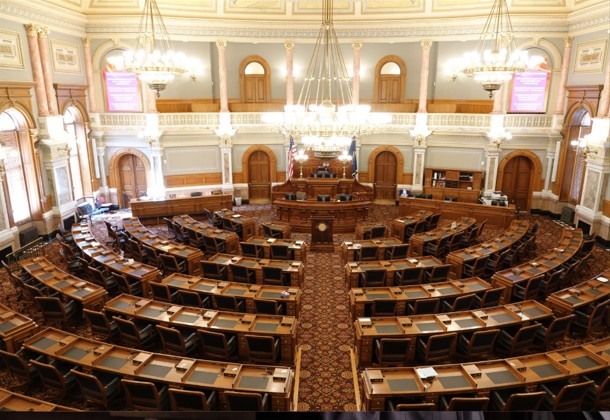A Landmark Ruling on Book Bans in Texas
Introduction
Austin, Texas, recently witnessed a crucial judicial decision when the 5th U.S. Circuit Court of Appeals struck down a Texas law that sought to ban hundreds of books from public school libraries. The legislation labeled certain materials as “inappropriate” or “obscene,” but the court ruled 2-1 that such a law violated the First Amendment. This ruling has invigorated dialogue around free speech, educational freedom, and the rights of students, particularly amidst heightened national discourse about educational content and censorship.
Background of the Texas Law
The controversial Texas law was implemented in 2023 and authorized school boards to remove books deemed unsuitable for students. Critics quickly pointed out that the law disproportionately affected works by authors from marginalized communities, thereby limiting students’ exposure to a range of perspectives. The law specifically targeted literature touching on themes of race, gender, and sexuality, igniting fierce debates regarding parental control, educational policies, and censorship in schools.
Legal Challenges
In reaction to the law, several authors, publishers, and advocacy organizations came together to file a lawsuit, claiming that the legislation constituted unconstitutional censorship. The case drew significant attention across media platforms, highlighting broader debates over educational content and the balance between parental authority and student rights. Various stakeholders, including civil rights groups, voiced concern over the potential chilling effects of such bans on freedom of expression and the dissemination of diverse ideas.
The Court’s Ruling
In delivering the majority opinion, Judge Elena Moreno emphasized that the law “unconstitutionally suppresses access to information and ideas that are fundamental to a free society.” The ruling firmly contended that while educational authorities have discretion in curating educational materials, the imposition of sweeping bans negatively affects the rights of both students and educators. The decision ultimately reaffirmed the critical notion that exposure to a variety of viewpoints is essential in a learning environment.
Dissenting Opinions
Judge Robert Caldwell presented the dissenting view, arguing that the state has a legitimate obligation to shield children from potentially harmful content. He maintained that the law’s intent was not to stifle ideas but to provide a protective measure for minors. Caldwell’s perspective highlights the complexities inherent in the legislation and the nuanced discussion surrounding what constitutes “harmful” material in educational settings.
Reactions From Various Stakeholders
The reaction to the court’s ruling was swift and diverse. Civil liberties organizations, such as the American Library Association and PEN America, heralded the decision as a significant victory for intellectual freedom. A spokesperson for the ACLU described it as a “monumental win for the rights of students to access diverse ideas.” Conversely, supporters of the law, including Texas Governor Greg Abbott, chastised the ruling as overreach by the judiciary, reaffirming their commitment to ensuring that parents can restrict access to content considered harmful or inappropriate for children. Abbott has signaled intentions to appeal the case to the Supreme Court, indicating that the debate over how educational institutions manage content is far from over.
Impact on Educational Institutions
The immediate effect of the ruling is the suspension of the book ban, compelling schools throughout Texas to reinstate access to previously prohibited titles. This swift restoration will require educators to revisit and amend their library policies to align with the court’s decision. The ripple effects may lead to renewed discussions about how best to manage educational materials and promote an environment conducive to diverse perspectives in schools.
National Implications of the Ruling
Legal experts suggest that the 5th Circuit’s decision may resonate far beyond Texas, setting a potential precedent for similar legal conflicts across the nation. As various states grapple with laws aimed at controlling access to educational resources, the ruling underscores an ongoing tension between the imperatives of protecting individual freedoms and addressing community concerns in public education. The forthcoming actions related to this prominent case could further shape the national discourse surrounding free expression and educational practices.
Conclusion
The 5th U.S. Circuit Court’s decision to overturn Texas’s book ban law serves as a significant affirmation of the principles enshrined in the First Amendment. It highlights the necessity for educational institutions to promote a wide array of perspectives and engage students with diverse ideas, essential components of an enriching learning environment. As discussions on censorship and parental control in education persist, this ruling sets the stage for greater exploration of the delicate balance between protecting minors and upholding freedoms of expression.
FAQs
What was the Texas law about?
The Texas law allowed school boards to ban books deemed “inappropriate” or “obscene,” particularly targeting literature focused on race, gender, and sexuality.
Why was the law challenged?
The law was challenged on the grounds that it constituted unconstitutional censorship, disproportionately affecting works by marginalized authors and limiting access to diverse perspectives for students.
What was the outcome of the court’s ruling?
The 5th U.S. Circuit Court of Appeals ruled 2-1 that the law violated the First Amendment, emphasizing the importance of access to a wide range of information and ideas.
How is the ruling expected to impact schools in Texas?
The ruling requires schools to restore access to previously banned books and may prompt discussions on revising library policies to comply with the court’s decision.
What are the potential national implications of this ruling?
The decision may influence similar legal battles in other states, possibly setting a precedent for future court rulings pertaining to free speech and educational content.

